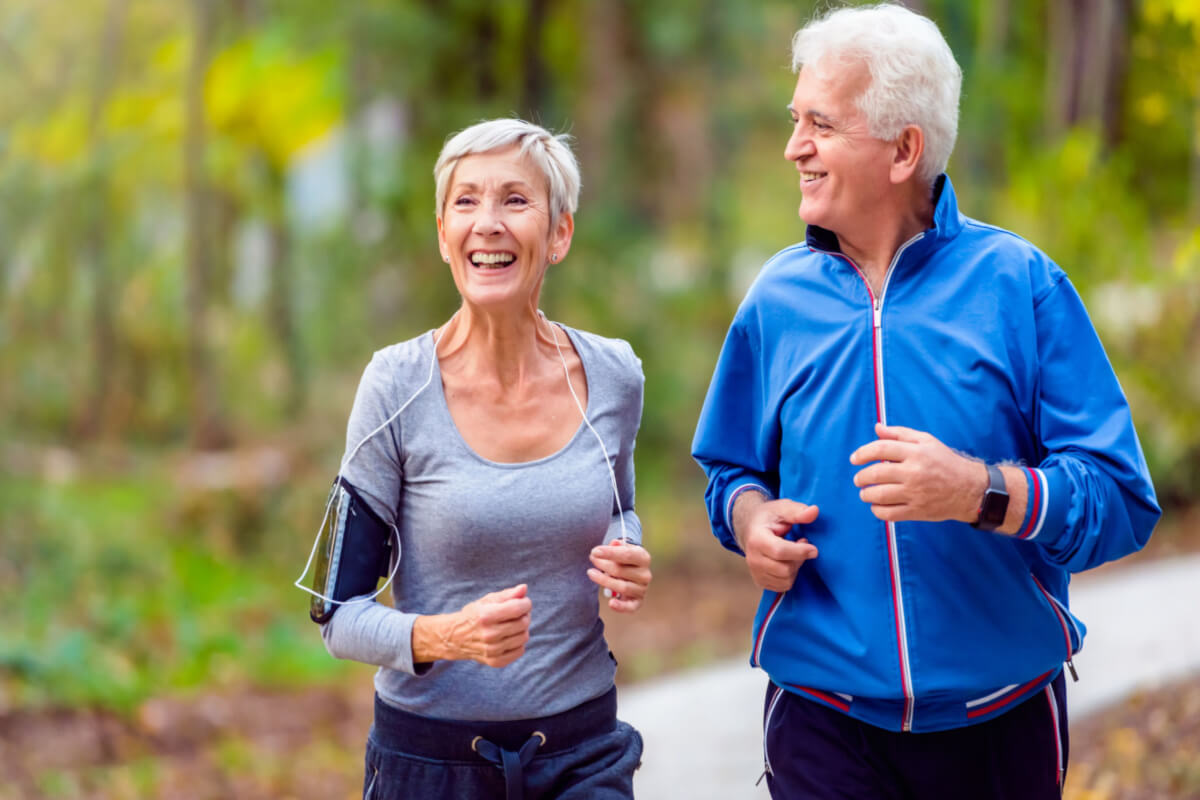Daily Practices to Improve Your Mental and Physical Health
Posted By HarborChase on September 1, 2022Improving mental and physical health is crucial for increasing longevity and boosting overall wellness. That being said, mental health and physical health are directly linked to each other.
Dr. Eric Rafla-Yuan, a cardiovascular psychiatrist at the University of California San Diego, describes this link between the heart and brain as “bi-directional.” Essentially, this means that each time you go for a walk or participate in a yoga class, you’re also doing wonders for your mindfulness, energy, and mood!
Incorporating regular exercise into your routine can help you maintain a healthy weight and blood pressure and can also enhance your mood, increase your energy, and keep stress and anxiety at bay.
It’s also crucial to exercise your mental health as well, in order to stay happy and ward off signs of stress or anxiety. By practicing gratitude, meditating, and connecting socially, you can ensure that your mental well-being is healthy so that you can live purposefully.
HarborChase Senior Living is sharing some things to consider to improve your physical and mental health.
How Often Should You Exercise?
As we get older, physical activity is one of the best things we can do to keep ourselves in shape. In addition, staying physically active is a vital way to prevent health issues such as cardiovascular disease and to drastically improve chronic conditions like arthritis or diabetes.
The CDC recommends that adults over the age of 65 should incorporate 150 minutes of moderate intensity activity, two days a week of strength training, and anywhere from 2-3 days of balance-improving activities. You also don’t have to go to the gym, as there are ample exercises for seniors to do at home.
Different types of Physical Activity
Moderate-intensity exercises for seniors to do at home or in their neighborhood can be as simple as brisk walking, jogging, or hiking. 150 minutes a week can be broken down into 30 minutes a day, five days a week. This cardio-based activity increases your heart rate to provide more oxygen to the brain, which is important for regular functionality.
Strength training is an excellent way to prevent the loss of muscle mass, which can happen as we get older. Weight lifting, sit-ups, push-ups, and working with resistance bands are great activities that can strengthen muscles. These activities work the major muscle groups of your body (legs, hips, back, chest, abdomen, shoulders, and arms) and should be done in repetitions of 8-12 per activity.
Balance is another function that can decline with age. Joining yoga classes or trying out Tai Chi are excellent and fun ways to improve your balance! You can even make it a point to practice standing on one foot or walking backward for a few minutes every day for a more simple approach.
Physical Activity’s Impact on Mental Health
The physical benefits of exercise are endless, but the mental effects are equally as limitless and valuable!
Increased heart rate promotes mental functionality by pumping more oxygen into the brain. This process fosters neuroplasticity, which helps the brain adapt and grow. By increasing the amount of daily exercise you get, you are also enhancing your cognitive abilities.
In addition to feeling sharper mentally, physical exercise releases endorphins, which are chemicals that your brain releases to relieve stress and even pain. These chemicals are tied to feelings of “euphoria,” or general happiness. Endorphins released by participating in physical exercise can lower the risk of depression and anxiety over time.
Practicing Mindfulness
Physical activity might be an excellent way to improve brain function by enhancing your mood and keeping you sharp, but it’s also beneficial to exercise your mind as well as your body.
Mental health includes our emotional and psychological well-being
and affects how we feel, think, and act as we go through life. Mental health contributes to how we cope through challenging times, form meaningful relationships, and stay productive and purposeful.
Here are a few great ways to take care of your mental well-being:
Practice Gratitude
Gratitude is the feeling of appreciation and thankfulness for the good things in our lives. One way to practice gratitude is to keep a journal, where you can write down the things you are thankful for.
Whether it’s the support from your friends and family or a fun event you attended, it’s important to keep track of the positive experiences and emotions you experience to enrich each moment in your life.
Connecting with Others
Social relationships are a huge source of happiness for many. So it’s important to connect with others around us to keep us fulfilled within our relationships.
By simply making a new friend, connecting with family members, or joining a new club, creating new friendships can prevent stress and depression.
You could also get involved in your community by volunteering and lending a helping hand to those in need! This is a great way to meet new people and learn more about your local neighborhood.
Meditation
Meditating is a great way to focus on your awareness, both in mind and body. By increasing your ability to connect with yourself, you can begin to understand things that might cause you stress, pain, or lack of focus.
By focusing on breathing, being aware of your body and mind, and generating a new appreciation for yourself and your environment, you can create a new mindset.
At HarborChase Senior Living, we understand how significant physical and mental health is for older adults. Our various communities throughout the U.S. offer independent living, assisted living, and memory care services to older adults and families. We also offer enhanced activities and amenities to ensure residents have every resource necessary to care for their mental and physical health.
We invite you to find a HarborChase Senior Living community near you or contact our team with any questions – we’re ready to help!
Categories: Health Habits


